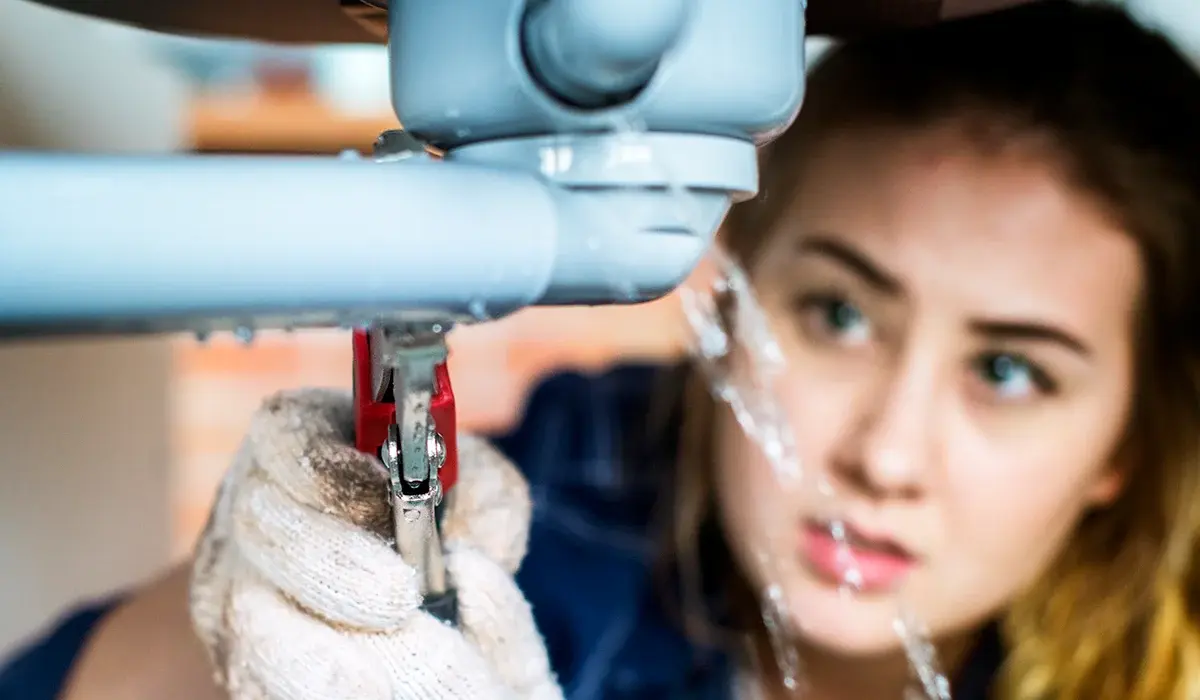Plumbing
Top 6 Tips for Plumbing Emergencies

Plumbing Emergency Tips Guide: Handle Sudden Issues with Confidence
Plumbing disasters strike fast and without warning. Overflowing toilets or sewer backups can ruin your day—and damage your home.
When these situations hit, knowing the right steps can help limit the destruction. This Plumbing Emergency Tips Guide shares key strategies to take control quickly and safely.
From leaky faucets to backed-up bathtubs, every homeowner should know how to respond fast and minimize costly repairs.
1. Shut Off the Water Immediately
First, shut off the water supply. This step prevents additional damage from spreading throughout your home and structure.
Turn off water at the fixture, like the toilet or sink, if you can easily locate the valve.
If water continues running or you can’t find the valve, shut off your home’s main water line.
You can usually find this valve near the water meter, so locate it as soon as you move in.
Stopping the flow fast saves you thousands in damage and keeps minor issues from becoming disasters.
2. Assess the Damage Thoroughly
Next, inspect the affected area for visible damage. Check for water spots, soft floors, or bubbling paint.
Sniff for musty odors or dampness. These signs point to moisture damage and hidden leaks.
Use flashlights to find water buildup under sinks, around fixtures, or inside cabinets.
Take notes and, if possible, snap photos to share with professionals when you call for help.
The more details you gather, the easier it is to describe the issue over the phone.
3. Turn Off the Water Heater
After the water is off, shut down the water heater to protect the appliance from damage.
This step becomes more crucial in larger plumbing disasters, especially when you’re unsure of the scope.
If you use a gas water heater, always turn off the gas valve before shutting off the unit.
Water heaters can burst or overheat without water flow, making this step essential in emergency cases.
4. Drain the Remaining Water
Next, drain the remaining water from pipes to prevent further damage and clean up easier.
Open indoor faucets and don’t forget to open outdoor spigots or hoses as well.
This clears pressure from the system and allows trapped water to exit safely.
Emptying the system can also reduce pipe bursts caused by pressure changes inside.
5. Contact the Water Company First
Sometimes, the issue isn’t inside your home. Problems in the sewer main or city lines might be the culprit.
Before hiring a plumber, contact your water company to determine responsibility.
They may send a technician if it’s outside your property line or part of their system.
This call could save you time, money, and unnecessary service charges.
6. Call a Licensed Emergency Plumber
After you complete the basics, it’s time to call in a professional. Don’t attempt complex repairs alone.
Call at least three licensed plumbers and provide accurate details about what you’ve done so far.
Ask about emergency service fees and request ballpark quotes for your situation.
While some won’t give exact prices without inspection, they can estimate based on your description.
Be prepared to act fast and choose the most responsive, reliable option.
Plumbing Emergency Tips Guide: Supplies You Should Always Have Handy
A Plumbing Emergency Tips Guide is incomplete without discussing the tools every homeowner should own.
Keep a 5-gallon bucket and duct tape ready to contain leaks temporarily and reduce water spread.
Stock essential tools like plungers, adjustable wrenches, screwdrivers, and Allen keys for quick fixes.
Heavy-duty rags and slip-joint pliers can help handle wet repairs and cleanups with ease.
Prevent Future Plumbing Emergencies
While not all emergencies are preventable, smart habits reduce the risk of unexpected disasters.
Avoid flushing wipes or pouring grease down drains, even if products claim they are “safe.”
Do not rely on chemical drain cleaners or drop-in toilet cleaners, which may corrode pipes over time.
Use your garbage disposal responsibly—avoid bones, oils, and fibrous vegetables like celery or corn husks.
Drain your water heater annually and always know where your shutoff valve is located.
Final Thoughts: Stay Ready and Informed
Plumbing emergencies often strike when least expected, but being prepared reduces stress and costly damage.
With this Plumbing Emergency Tips Guide, you now have the tools to take immediate action when trouble hits.
Act fast, stay safe, and don’t hesitate to call professionals when the issue feels overwhelming.
Explore More News on This Website
Stay ahead of household disasters with timely advice and essential tips.
Explore more news on this website for expert guidance and reliable home maintenance strategies.
